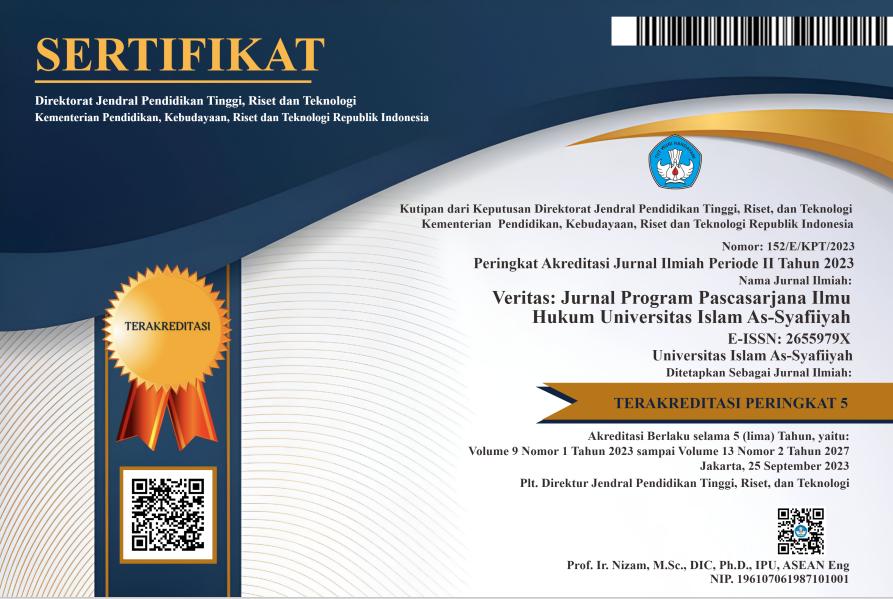AZAS PENCEMAR MEMBAYAR SEBAGAI TANGGUNG JAWAB MUTLAK DALAM UNDANG-UNDANG NOMOR 32 TAHUN 2009 TENTANG PERLINDUNGAN DAN PENGELOLAAN LINGKUNGAN HIDUP
Abstract
In the framework of Utilitarianism (Utilitarianism) the criteria for determining the
good of a deed is the greatest happiness of the greatest number, the greatest
happiness of the greatest number of people. Utilitarian Theory provides a moral
basis for our responsibility to preserve the environment. According to
utilitarianism, an act (or rule) is good, when it brings the greatest pleasure to the
greatest number of people or in other words if it maximizes the benefits. It is clear
that environmental conservation brings the most favorable conditions for all
mankind, including future generations.
References
Tjitrosudibio dan Subekti, ”Kitab Undang-undang Hukum Perdata”, Pradya
Paramita, Jakarta, 1983.
UUD Negara RI Tahun 1945, Sekretariat Jenderal Kepaniteraan Mahkamah
Konstitusi RI, 2010.
Undang-undang No. 32 tahun 2009 tentang Pengelolaan dan Perlindungan
Lingkungan Hidup.
Undang-undang No. 23 Tahun 1997 tentang Pengelolaan Lingkungan Hidup.
Koran Kompas, tanggal 25 Nopember 2006.
Koran Kompas, tanggal 29 Nopember 2006.
www.https://cdn.tmpo.co/data/2015/05/29/id_403869/403869_620.jpg.




